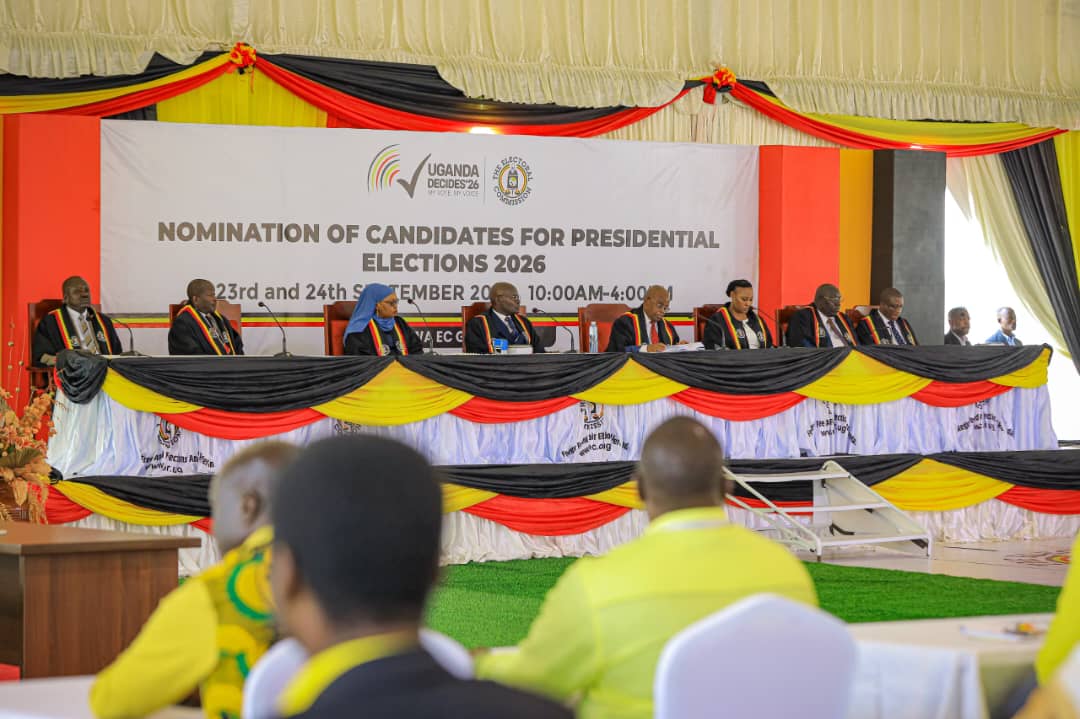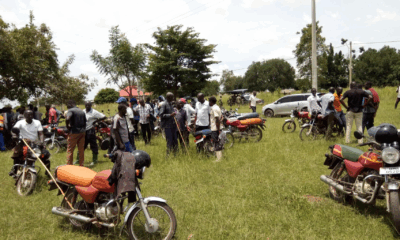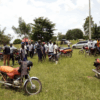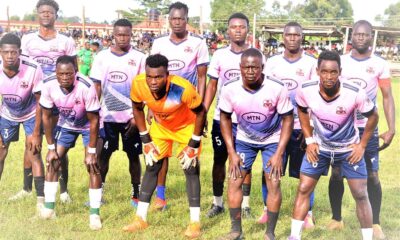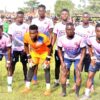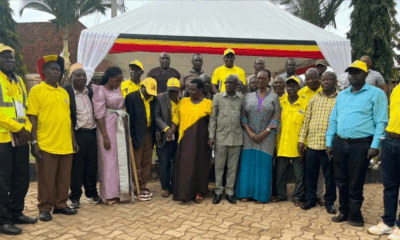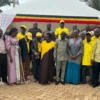Elections
Electoral Commission Clears Museveni for 2026 Presidential Race
The Electoral Commission has officially nominated Yoweri Kaguta Museveni, the National Resistance Movement (NRM) candidate, to contest in the 2026 presidential election.
Museveni arrived at the Electoral Commission offices in Lubowa, accompanied by his wife, Janet Museveni. Upon arrival, he was welcomed by several senior NRM officials, primarily from the Central Executive Committee (CEC).
He was then guided into the nomination tent, where the Electoral Commission Chairperson, Justice Simon Byabakama, alongside other commissioners, reviewed and verified his academic qualifications and other voter-related documents.
Edwin Karugire, a founding partner at K&K Advocates, represented Museveni in signing for and collecting the nomination forms from the Commission.
Justice Byabakama instructed Museveni to appoint an official agent who will oversee the coordination of his campaign events and media engagements, and represent him when necessary. He also asked Museveni to submit a detailed schedule of campaign events and media appearances to ensure a coordinated and balanced campaign environment for all presidential contenders across the country.
Additionally, the Commission informed Museveni that he would need to enter into a memorandum of understanding with the EC to adhere to agreed-upon campaign timelines and regulations. A digital version of the national voters’ register was handed over to Karugire on Museveni’s behalf.
After his nomination, Museveni addressed the media, expressing appreciation for the Electoral Commission’s efforts, stating that the nomination involved rigorous review processes.
He called on the NRM’s structures to assist in identifying and holding criminals accountable, stressing the importance of showcasing the party’s accomplishments and future plans to the public.
Museveni also underscored the need to focus on Uganda’s younger generation, whom he referred to as Gen Z.
He became the first presidential candidate to be duly nominated and was provided with a security vehicle by the Electoral Commission to support his campaign activities. The Commission also reminded him to strictly follow electoral guidelines.
Museveni thanked both the Electoral Commission and NRM members for continuing to trust in his leadership.
“I thank the Electoral Commission for doing the hard work of studying the documents and approving our candidature,” Museveni said, acknowledging what he described as “a lot of paperwork” involved in the nomination. He also extended gratitude to the NRM for re-electing him as party chairman for the 2025–2031 term and endorsing him as their presidential flag bearer for the 2026 polls.
Taking a reflective approach, Museveni recalled Uganda’s early days and encouraged the NRM media team to visually depict the country’s development using satellite imagery, specifically comparing Kampala in 1986 to the present. Referring to the nomination venue, he noted that the Lubowa and Lweza area used to be a coffee estate. “This was a coffee shamba called Ruboa Estate,” he said. “If you show satellite images of this area from 1986 and now, you don’t need to say much. The pictures will speak for themselves.”
He argued that visual comparisons would convey Uganda’s progress more effectively than lengthy speeches. “Show the picture of Kampala in 1986 from space, and show it now. That picture will say more than talking, talking, talking,” he said, asserting that such imagery would be a powerful message for voters.
Highlighting economic growth, Museveni reported that Uganda’s Gross Domestic Product (GDP) had risen significantly over the past term from around $34 billion to $68 billion. He described this as a major accomplishment that often goes unrecognized. “To double the GDP in one term is not a mean achievement. I don’t know why the NRM doesn’t talk more about some of these things.”
He noted that Uganda had moved from a Least Developed Country to a Lower Middle-Income status and set sights on progressing into a High Middle-Income economy, with long-term aspirations of achieving First World status. “This is what we intend to do in this coming term,” Museveni said. “We are no longer where we started. We are now building on a foundation that includes electricity, roads, telecommunications, manpower, and most importantly, peace.”
According to Museveni, these core developments have significantly contributed to an influx of foreign investment. “People in the world are looking for peaceful and profitable areas to invest in. That’s why we are being flooded with investments,” he noted, citing feedback from Uganda’s Asian business community who praised the nation as a land of “three Ps”, peace, potential, and profitability.
Museveni concluded by emphasizing that his campaign would highlight both achievements and future commitments. “We now need to convince Ugandans not just with promises, but with results, what we’ve done, and what we will do.” He is seeking another term with the goal of finalizing Uganda’s transformation into a fully industrialised, investment-friendly, high middle-income economy.
Comments



